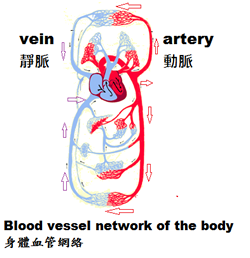|
High Blood Pressure and Chinese Medicine
Persistent elevated blood pressure in the arteries is the key feature of hypertension, above 90% of the cases can’t identify a specific cause. This common health problem typically develops over many years, and is likely to be a combined result of lifestyle, environment, and degeneration of the body.
Classifications of blood pressure for adults aged 18 years or older
|
Blood Pressure Categories
|
Systolic (mm Hg)
|
|
Diastolic (mm Hg)
|
|
Normal
|
90 - 119 |
and |
60 - 79 |
|
Prehypertension
|
120 – 139 |
or |
80 – 89 |
|
Isolated Systolic Hypertension (ISH)
|
> 139 |
and |
< 90 |
|
Hypertension Stage 1
|
140 – 159 |
or |
90 – 99 |
|
Hypertension Stage 2
|
160 - 179 |
or |
100 - 109 |
|
Hypertensive Crisis
|
> 180 |
or |
> 110 |
According to the China Epidemiological Survey in 2010, the incidence rate of hypertension is 18.8% among Chinese adults. It is estimated that about 200 million people are living with hypertension in the country, while 130 million people don’t realize they are having it, and only one in every four treated people are well-controlled. Hypertension remains inadequately managed worldwide. If not treated or controlled, the “silent killer” can lead to serious health consequences, such as heart attack, stroke, dementia, kidney failure, and blindness. Being knowledgeable or aware of hypertension risk can make you live healthier, and protect those you love.
Hypertension rarely causes symptom, occasionally individuals may experience dizziness, headache, ear ringing, blurred vision, palpitations, neck stiffness, chest stuffiness, forgetfulness, poor concentration, insomnia, irritability, limb numbness and breathe shortness. These symptoms are not specific to hypertension, neither are they correlate with the severity of the condition.
The primary goal of hypertension treatment is to prevent the occurrence of cardiovascular complications, and protect the target organs. Hypertension is a long term and ongoing condition, persistent elevated blood pressure will make the small arteries become harden, thicken and narrow, which affect blood supply to the organs and tissues, leading to irreversible damages. The heart, brain, kidneys and retina (the inner lining of the eye balls) are most affected, seriously, there can be coronary heart disease, stroke, kidney failure and blindness.

|
|
Blood vessel network of the body
|
Once diagnosed with hypertension, individuals should keep monitoring their blood pressure, and some may even need taking medications for life. Even though it cannot be cured, but aggressive treatment and comprehensive management are able to control it properly, individuals can still live like healthy persons.
According to the official guidelines of hypertension management, such as Joint National Committee on Prevention, Detection, Evaluation, and Treatment of High Blood Pressure (JNC), lifestyle modification is usually the initial step for stage 1 hypertension (and are otherwise healthy individuals). If the goal blood pressure is achieved, individuals can keep monitoring it and continuous with the non-medicinal approaches. After the trial for months, when lifestyle modification is insufficient to achieve the treatment goal, then antihypertensive medications should be introduced. For those with prehypertension (120–139 / 80–89 mmHg), lifestyle modification alone is adequate to prevent the risk of developing real hypertension.
Lifestyle modification is essential for the treatment and prevention of hypertension. Effective changes include quitting smoking, moderate alcohol drinking, losing body weight, low salt and low fat diet, being physically active, as well as proper stress management. For early stage hypertension, blood pressure is likely to be controlled after lifestyle changes alone, even for severe hypertension, a healthy living can make the antihypertensive medications more efficient.
Hypertension is not a condition that you can treat and then ignore it. Many factors can affect the body’s control over blood pressure, for example, the amount of fluid and salt inside the body, the hormone levels, and the conditions of kidneys, nervous system and blood vessels. We may encounter various risks everyday that affect the body to regulate the blood pressure. A long-term commitment to healthy habits is required in addition with antihypertensive medications.

In recent years, more and more people turn to Chinese holistic approaches for better blood pressure control, keeping it in a safe level and minimalizing the fluctuations. Traditional Chinese medicine (TCM) has unique concepts and methods in disease prevention and promoting health. In order to keep the body in an optimal state, TCM encourages people to incorporate healthcare routine in everyday life and act on regular basis. One should attentively take care of both physical and mental aspects in accordance with different life stages, seasons and environments. For hypertension individuals, TCM approaches such as herbal medicine, acupuncture, moxibustion, massage or food remedies are recommended. Moreover, regular practice of traditional exercises is able to link up the mind and body and attain a better quality of life.
TCM treatment aims to rebuild the self-healing power of the body, and to maintain a stable, constant internal environment. It has proved that TCM methods can help hypertension individuals in better blood pressure control, reducing blood pressure variability, and protecting target organs. In addition, they can improves some coexisting health problems, such as high cholesterol, diabetes, gouts or metabolic syndrome of individuals, and thus further reduce their health risks.
When adopting TCM methods for hypertension management, it should be under the guidance of holistic concept and treated based on
syndrome differentiation
. There is no exclusive remedy that fits for all; even individuals with the same blood pressure level, their remedies may be totally different. Last but not the least, ask your family doctor before changing the routine treatment. |